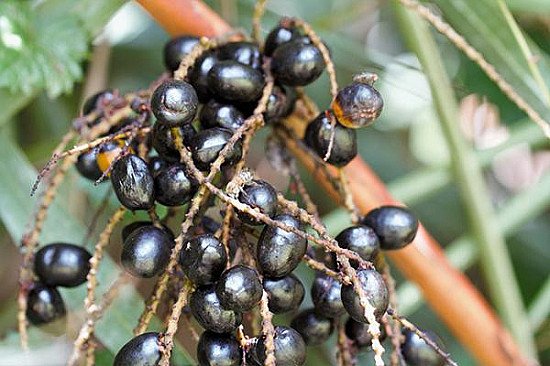Can an Enlarged Prostate Benefit from Saw Palmetto? Here's What the Skepticism and Science Say
For a long time, saw palmetto has been a popular natural supplement, particularly for men who are struggling with an enlarged prostate. Harvested from the southeastern U.S.'s scruffy palms, this berry-based cure is marketed as a botanical salve for urinary problems and is used by thousands of people every day. But is it really wishful thinking in a capsule, or does it really work?

Let us be honest and nuanced about the benefits and drawbacks of saw palmetto for benign prostatic hyperplasia (BPH), commonly referred to as an enlarged prostate.
The Talk About Saw Palmetto
Let us start with some background.
Traditional folk medicine has been using saw palmetto for over a century. It is often suggested as a "natural alternative" to pharmaceutical drugs for prostate issues because it is believed to have anti-inflammatory qualities. Indeed, it is estimated that more than one-third of Americans who take supplements do so specifically to support their prostates.
That is a significant amount. However, popularity is not proof.
What Is Actually Caused by BPH?
The medical term for an enlarged prostate gland is benign prostatic hyperplasia, or BPH. While it is not malignant, it is extremely inconvenient and is a nearly unavoidable rite of passage for older men. A weak pee stream or the sensation that your bladder is never completely emptied are among the symptoms.
The issue is caused by the prostate impeding flow by pressing against the urethra like a thumb on a garden hose. 5-alpha reductase inhibitors, such as finasteride (Proscar) and dutasteride (Avodart), function by decreasing prostate tissue and lowering blood pressure.
According to some preliminary research, saw palmetto may work similarly, perhaps by influencing hormone pathways to enhance flow and lessen edema. But what about the science itself? At best, it is muddy.
More Smoke Than Fire, According to the Research?
The gold standard of research—randomized, placebo-controlled clinical trials—tells a different tale, notwithstanding a few small studies that have suggested some moderate advantages. These studies are frequently supported by supplement producers.
One large trial had 225 men with moderate to severe BPH who received 160 mg of saw palmetto twice a day for a year, or a placebo.
However, some contended that the dosage might have been too low. In a larger trial, researchers doubled down and increased the dosage to 960 mg per day, which is significantly higher than what is recommended by most supplement bottles. This time, 18 months were spent tracking almost 370 guys over 45. The outcome? Once more, the saw palmetto group did not differ significantly from as well as those on a placebo.
Expert Opinions
"Saw palmetto is unlikely to hurt you, but it probably will not provide any substantial benefits either," says Dr. Heidi Rayala, a urologist and assistant professor at Harvard Medical School.
In the meanwhile, caution is advised by Dr. Michael Barry, a medical expert who oversaw one of the significant experiments. Not only does saw palmetto seem to be ineffective for BPH, but men who have symptoms related to their urine should not self-diagnose. Additionally, problems with the bladder may indicate more serious illnesses, such as bladder or prostate cancer. Additionally, saw palmetto may cause blood coagulation problems, which could be dangerous for anyone taking blood thinners.
Should You Accept It, Then?
The truthful response is as follows: Saw palmetto probably will not assist much, but it might not hurt either.
The greatest place to start if you are experiencing symptoms of an enlarged prostate is your doctor's office, not the supplement store. FDA-approved drugs have undergone extensive testing and proven to be effective. It is also acceptable to be interested in natural alternatives; just make sure you have the right medical advice.
Your body is not a do-it-yourself endeavor. It merits knowledge, not simply zeal.
The Bottom Line: Although saw palmetto may seem like a simple solution, the research supporting its use in treating BPH is more myth than reality. Even while it is generally harmless, its efficacy is questionable, particularly in comparison to the thoroughly examined pharmaceutical alternatives that are already on the market.
Discuss openly with your physician if you are considering taking it. You need genuine care for your problems, as well as genuine remedies.
What's Your Reaction?




















